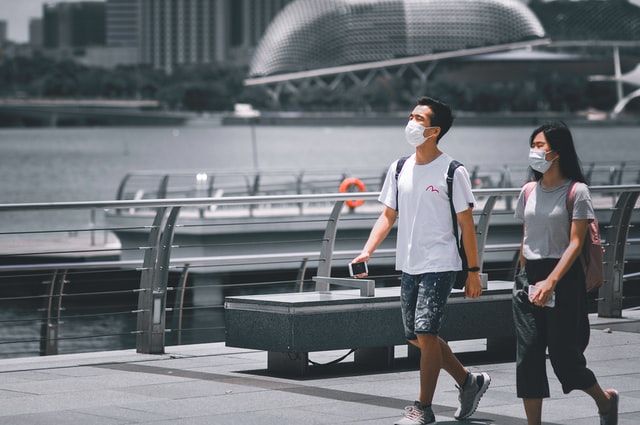Wearing face masks has become a necessity during the COVID-19 pandemic and an integral piece in our wardrobe. In addition to this, the second wave of coronavirus in India has made wearing layers of masks outdoors extremely important. This can sometimes lead to ‘maskne’, a term that is now being used widely for acne and skin issues caused due to mask.
Maskne (mask+acne)
‘Maskne’ is an umbrella term that is used for several skin issues. The trapped humid environment that is restricted to the mask and the friction on the skin can cause skin irritation. This can lead to inflammation, pore-clogging, acne, etc.
Also Read | Here’s why CDC changed its mask guidelines for vaccinated Americans
Here’s what you can do to avoid maskne:
1. Wear cotton masks underneath the regular masks to avoid friction. Choose a smooth fabric with a higher thread count for the mask.
2. Apply fragrance-free sunscreen and moisturizers for smooth skin and cooling-down effect. In case of allergies and sensitivities, contact a dermatologist. Doctors generally prescribe steroid creams to calm the inflammation.
3. You must wash your face at least three times a day to wash off dust and oil.
4. If possible, avoid using makeup products while wearing a mask. Or use products that are non-comedogenic and hypoallergenic.
Also Read | Though US lifts guidance, not everyone ready to give up masks
5. Avoid masks made of synthetic fabrics such as nylon or rayon as these materials can cause irritation easily.
6. According to The American Academy of Dermatology Association, taking a mask-free break for 15 minutes in every four hours is essential. Always remember to wash hands before taking a mask break.
7. Get a mask that fits you perfectly. We often touch masks to adjust them. This can cause friction as well as COVID-19.







